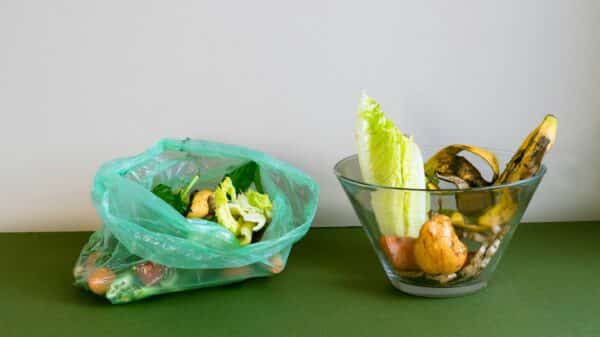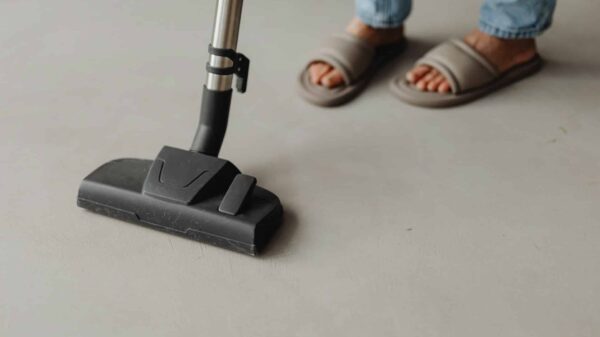are imported). “If you’re expecting a baby or have small children, it makes sense to buy those items sooner rather than later to avoid higher prices,” Huang advises.
As many parents can attest, being a caregiver is anything but boring. It involves constantly navigating a multitude of needs and desires. With prices on the rise due to tariffs and supply chain challenges, the task has become even more overwhelming. It’s entirely natural to feel anxious about the increasing costs that seem to be creeping in. Managing a family budget can already be stressful, and the ongoing news about inflation adds another layer of concern.
Before you rush to panic-buy essentials at Costco or place large online orders for diapers, let’s take a moment to approach this situation with some composure and strategy. Experts from various fields, including supply chain analysts and financial planners, assert that with a bit of foresight and planning, families can cope with these economic challenges without overspending.
Understanding Tariffs and Their Impact
Firstly, it’s crucial to acknowledge your concerns—they’re perfectly reasonable. Tariffs are not merely abstract policies; they directly influence our daily lives. They elevate the prices of many necessary items, such as clothing, toys, and food. While the government might depict these tariffs as a form of tax on foreign goods, the truth is that these costs are integrated into what we pay at retail outlets. As U.S. importers grapple with these additional expenses, they often pass the costs onto consumers.
Recent predictions indicate that tariffs could inflate the expenses of the average American family by anywhere from $4,000 to $8,000 this year. This figure may feel like an extra burden added on top of existing financial obligations. It’s a daunting prospect, especially when you’re trying to balance bills, childcare, and save for the future.
Though there is a possibility that some tariffs may be rescinded through negotiations, it’s prudent to prepare for the worst-case scenario. Experts caution about the potential for ongoing inflation, economic slowdowns, and other repercussions that could impact job security. The takeaway here is that being proactive in your shopping habits can position you for better outcomes moving forward, and knowing which items to prioritize can help you avoid unnecessary spending.
Smart Shopping Strategies
Rather than succumbing to frantic buying, consider employing a method experts call “precision shopping.” This involves a calculated approach to purchasing, focusing on seasonal requirements, taking advantage of sales, and using discounts. Anticipate your family’s needs and make targeted purchases that can lead to significant savings.
What to Buy Now
1. Kids’ Clothing & Shoes: Children grow rapidly, and since many clothing items are imported, it’s wise to plan ahead. Look for sales on durable brands now to avoid the rush where you might have to pay inflated prices later. Budget-friendly retailers like Target or thrift stores can yield excellent deals.
2. Toys and Gifts: While it may seem premature to think about birthday parties or holidays, purchasing toys early can help you dodge potential price increases. With a large share of toys manufactured overseas, buying ahead is a smart strategy. The sooner you make those purchases, the less likely you are to be taken by surprise with rising prices as celebrations approach.
3. Baby Gear: Expectant parents should prioritize acquiring essentials such as strollers, car seats, and monitors. Since these products often consist of components sourced internationally, they are more vulnerable to price hikes from tariffs. Snagging these items now can lead to noticeable savings.
Take a moment to relax. It’s understandable to feel overwhelmed by uncertainties. These are challenging times for families, and creating a budget amid rising expenses can feel like hitting a moving target. However, with a bit of planning and intention, you can not only face these challenges but also emerge as a confident parent. The focus should be on being prepared, not panicking. Every little proactive step you take can lead to enhanced financial stability in the future.
According to a report from the *New York Times*, a significant proportion of everyday electronics—like iPhones and televisions—are produced overseas, particularly in regions such as China, South Korea, and Taiwan, which are at the heart of recent tariff discussions initiated by the Trump administration.
Electronics for School or Work
For working parents or students managing online classes, electronics have become essential. Fortunately, despite fluctuating prices tied to tariffs, there are still opportunities to secure bargains. “Look out for sales on refurbished models from reputable retailers like Best Buy or Amazon Renewed,” Carrillo recommends. These options often provide excellent value for families needing dependable technology without the hefty price tag. Purchasing refurbished electronics not only saves money but also supports environmentally responsible practices.
Small Appliances
For household essentials like blenders, air fryers, and vacuums, many rely on imported parts. Carls suggests looking for deals during promotional events like Memorial Day or Amazon Prime Day. Interestingly, a significant percentage of household appliances, such as 96% of charcoal grills, 71% of hair dryers, and 23% of washing machines, are produced in China. Taking advantage of these sale periods can help stock up on necessities without the burden of rising prices.
Health & Beauty Essentials
“Don’t forget about essential health and beauty products,” Carrillo advises. If you take medication, consider discussing with your healthcare provider about obtaining a three-month supply. This can offer peace of mind, especially for those with chronic health issues. Pharmacies such as Walgreens or CVS frequently have savings programs to lighten the cost. Additionally, it might be wise to stock up on over-the-counter medicines or first-aid supplies.
In the beauty realm, affordable alternatives abound from brands like e.l.f. Cosmetics and Maybelline. However, since a significant proportion of beauty tools are made in China—including 91% of combs, 71% of hair dryers, and 82% of makeup brushes—it might be prudent to gather your preferred items now while they remain reasonably priced.
Non-Perishables in Bulk
With increasing grocery costs, many parents are understandably concerned about their food expenditures. “Being proactive about food shopping can really pay off,” Carrillo emphasizes. Buying staples in bulk—such as rice, beans, and canned vegetables—is a smart way to maximize your budget. These items are economical and have extended shelf lives. Consider collaborating with friends or family for bulk purchases at local farmers’ markets for fresh, affordable produce.
If you’re willing to invest a bit of effort, canning or freezing seasonal fruits and vegetables can help ensure you have plenty during leaner months. Also, take note of foods imported from China that you might not realize are impacted. Common items like garlic, apple juice concentrate, and certain frozen veggies often come from overseas. Being aware of your food sources can help you make informed shopping choices.
Products Parents May Want to Monitor
While children may not be directly affected, many items that parents need are worth keeping tabs on. Cars have been particularly impacted by tariffs, with estimates suggesting price increases ranging from $2,500 to $20,000 for certain models. Other everyday items such as wine, furniture, coffee, and chocolate might also experience price hikes as a result of their reliance on imports.
How to Shop Smarter — Even as Prices Rise
Carrillo and Huang both caution against the rush to overstock perishables. Panic buying can lead to waste and strain on your budget. “Consider supplementing regular purchases with more economical options,” Carrillo recommends. Explore secondhand stores or community swap groups for gently-used books and clothing at a fraction of their original cost.
A savvy shopping tip from Huang: seek brands or platforms that allow direct-from-manufacturer transactions. This strategy can bypass various price markups and help alleviate tariff-related expenses. Transparency in sourcing can guide you through the tumultuous waters of rising costs.
Lastly, don’t forget to use price trackers like CamelCamelCamel to ensure you’re truly securing the best deals.
Bottom Line: Stay Grounded, Stay Smart
Let’s be honest. Tariffs and rising prices can be daunting and even somewhat intimidating. However, experts assure us that with a bit of foresight and planning, these financial challenges can be managed effectively.
“I’ve observed how economic changes impact hardworking families, particularly those on tight budgets,” shares Carrillo. “It’s a complex situation, but being prepared and resourceful can make a meaningful difference.”
Keep in mind, it’s about being proactive—not stockpiling. With careful planning and intelligent shopping, you can safeguard your budget while maintaining peace of mind.
Image Source: Rokas Tenys / Shutterstock
























